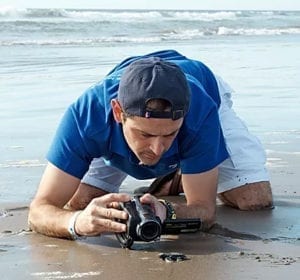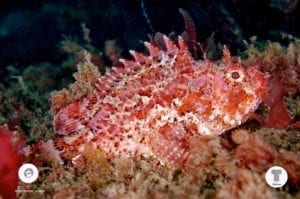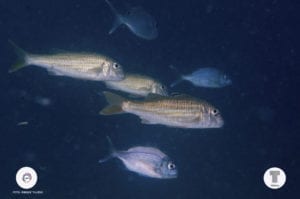World Oceans Day: Innovation for a Sustainable Ocean
World Oceans Day: Innovation for a Sustainable Ocean https://underwaterwine.com/wp-content/uploads/2019/10/PLENTZIA.jpg 1742 980 Anna Riera https://secure.gravatar.com/avatar/6662a76326b4ef3e96d5ce67cae0b037Today, June 8, we celebrate World Oceans Day. On this day we highlight the great role that the oceans play in our daily lives. One of its main purposes is to raise public awareness of the consequences of human activity on the oceans and to inspire measures for their protection and subsequent sustainable use of all marine resources, since the sea is an important source of food and medicine as well as an essential part of the biosphere. This year’s theme is “Innovation for a sustainable ocean“. You can follow all the events on the official website of the Day of the Oceans.
Nowadays, our oceans are on the verge of collapse and only about 1% of the world’s oceans are properly protected. Climate change and marine litter are two of the greatest challenges that human beings must overcome for the good conservation of marine life. The protection of marine areas is essential to conserve and sustainably exploit the oceans and their resources, it is essential to effectively and sustainably manage fisheries exploitation, to reduce marine pollution and ocean acidification.
It is time to be aware and to understand that this is a global problem affecting all human beings, to which we must all contribute, to a greater or lesser extent, in order to solve it. This is our home and we must protect it.
There are many organizations and institutions close to us that carry out different tasks to raise awareness and improve the current situation of our oceans.
The Plentzia Marine Station is located in Plentzia (in Basque, Plentziako Itsas Estazioa). It is a research centre for Experimental Marine Biology and Biotechnology belonging to the University of the Basque Country (UPV/EHU). The centre is dedicated to scientific and technological research and aims to protect the health of the oceans as well as to protect human wealth. It also aims to promote science, technology and environmental awareness.
Presentation of PiE, Plentzia Marine station of UPV/EHU from UPV/EHU on Vimeo.
AZTI, a technological centre expert in the sea and food value chain, a member of the Basque Research and Technology Alliance (BRTA), an alliance created to promote the technological ecosystem of the Basque Country. At AZTI, they develop sustainable products, services and business initiatives that energise the industrial fabric and recover and preserve natural resources. They carry out investigations to be able to provide integral and innovative solutions to the client companies, the basis for energising new innovative businesses.
The Spanish Institute of Oceanography (IEO), which depends on the Ministry of Science and Innovation, is dedicated to public research in the field of marine sciences. It is especially dedicated to research into scientific knowledge of the oceans, the sustainability of fishing resources and the marine environment. In addition, it has the Marine Environment and Environmental Protection Area, whose main objective is the knowledge of marine dynamics and oceanographic processes, as well as the study of the influence of their variability on the ecosystem, biodiversity, and marine resources and ocean-climate interaction. In addition, it maintains a marine pollution monitoring programme, whose results are reported to the relevant national and international bodies.
The Biodiversity Foundation, an entity of the Ministry of Agriculture and Fisheries, Food and Environment, seeks the conservation and sustainable use of biodiversity. Its activity is based on five lines of action, including research into marine and coastal biodiversity. It researches and preserves marine areas of high ecological value, in order to understand the changes that are taking place in the environment and to understand their implications on human life.
Apart from all this, they collaborate with 250 projects a year. One of the programmes they are currently promoting is LIFE IP INTEMARES, the largest project for the conservation of the marine environment in Europe, a very interesting programme with which they intend to integrate various funds, policies and actors for the management of a whole network of protected areas.

Enrique Talledo ©Secretos del océano
Today we would also like to highlight the work of Enrique Talledo. Enrique, of Cantabrian origin, a documentary maker, photographer and underwater cameraman who actively collaborates in Oceana’s expeditions. He directs Secrets of the Ocean, a novel and at the same time recognized environmental education project based on the knowledge, dissemination and protection of our seas. The project has been created to raise awareness, mainly among young people, about the need to take care of the planet’s oceans.
In commemoration of the Day of the Oceans he presents us this video: A Sea of Plastics (on the front page). It visually shows one of the most serious environmental problems that exist. In his own words, “If we do not change our course drastically, the future for the human species will be irretrievably lost“.
Enjoy his award-winning documentaries and awareness videos from international film festivals, documentary series for children, talks, photographs with rigorous scientific information on incredible sea creatures.
Oceana, the world’s largest organization focused exclusively on ocean conservation, marine ecosystem protection and endangered marine species. Today, on World Ocean Day, Oceana is calling for innovation in a different way to help the ocean regain its past abundance. Oceana remarks that “The real innovation in ocean conservation is to relieve human pressures and let ocean ecosystems play their own role” since nature itself is the greatest innovation in constructing safe and resilient marine ecosystems to counteract negative human impacts.

As an underwater winery, we have a very close relationship with the sea. As you know our winery is also an artificial reef designed to help in the recovery of the marine life in the area, which today has become a refuge for many animals and acts as a micro marine protected area. We carry out regular monitoring to evaluate biodiversity and the possible effects of climate change in parallel with the production of drinks under strict quality controls.
Despite being a private company, we are closely related to the sea, not only because the sea is the home of our wines, which directly influences their production and final process, but also because we are sea lovers, divers and sailors.

As a company, we have a great respect for nature, the sea and its species and we are committed to carrying out different actions in the future, many of them ideas taken from a dynamic carried out with the public of our congress “Underwater Wine Congress 2019“. We want to contribute more by reviewing our processes, our way of working and encouraging you to make small changes that together can make a big difference:
- Do not throw plastic or garbage into the sea. Help in the care of the beaches by not throwing anything away and trying to take away the waste you find.
- Do not take anything that lives in the sea. No shells, no sand…
- Do not buy products that exploit marine life, such as coral jewelry, star ornaments…
- Raise awareness and educate yourself and your loved ones through quality training and information. You can research on the internet, read books, watch documentaries…
- Do not throw contaminating products, such as oil, down the drain.
- Respect the sea. You can enjoy it, but don’t forget that it is home to many sea creatures. Act like a guest, not an intruder.
- Reduce the use of chemicals, for example, those found in sunscreens.
- Think about your carbon footprint and reduce your energy consumption, for example, by using your car when you have to, changing your light bulbs at home for energy-saving bulbs, etc.
- Make more sustainable food choices. When buying fish ask yourself where and how it was obtained. When you buy, help reduce the demand for overexploited species and don’t buy fish caught in an unsustainable way.
- Reduce the use of plastic in your daily life and especially the so-called single-use plastics such as bottles, cutlery, trays, etc.
- Separate garbage correctly and dispose of products such as batteries and medicines in appropriate facilities, which are highly toxic and may end up contaminating waterways.
- Support groups or organizations that protect the oceans. Find a national organization and consider supporting them financially or by doing volunteer work.








